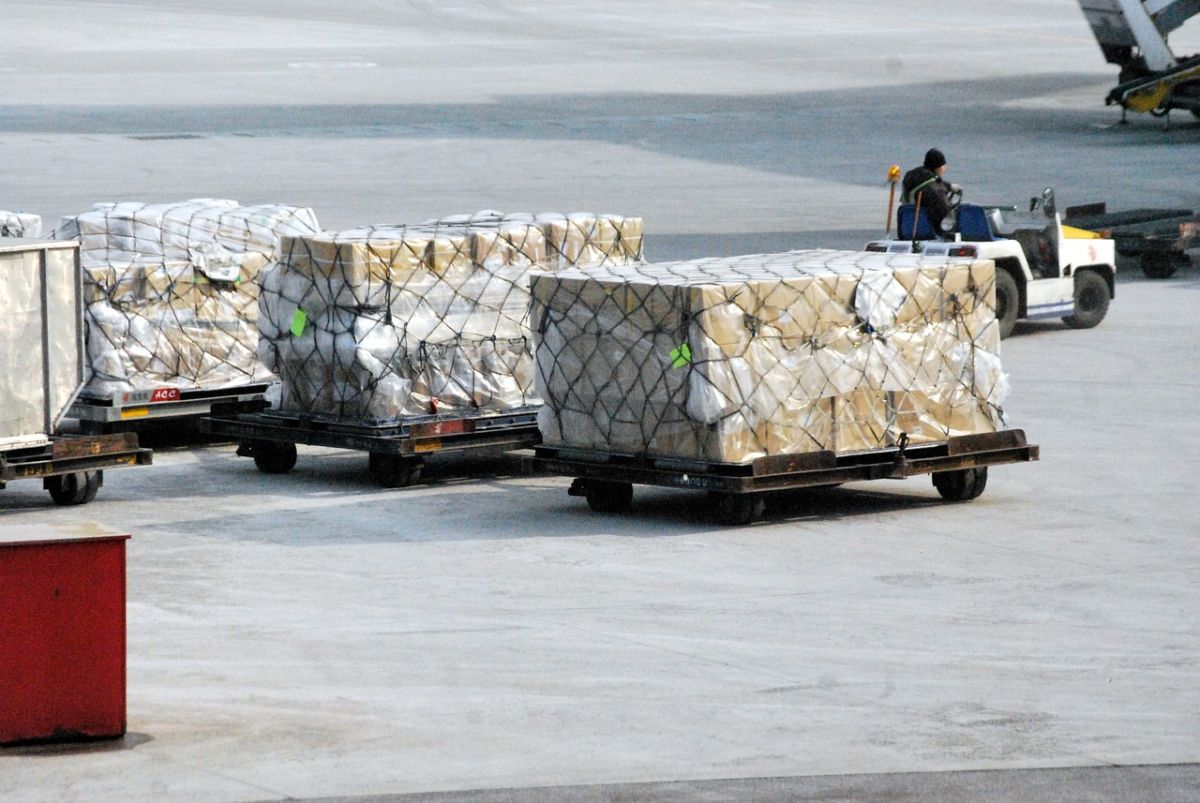The role of air freight logistics
The air freight industry plays an important role within the UK, particularly for regional economies.

The air freight industry plays an important role within the UK, particularly for regional economies. Many of the industries most reliant on air freight services are located in regions such as the North West, Wales and East Midlands, but the majority of air freight facilities are highly concentrated around Heathrow Airport in the South East, often causing congestion and delays to shipments.
In 2017, air freight accounted for over 40% of the UK’s trade (outside the EU) in terms of value – equivalent to over £180 billion[1] – but under 1% in terms of volume. This reflects the fact that, as transporting goods by air is significantly faster than other transport modes, air freight is often used for time-sensitive and high-value products. The fast delivery of these products supports many important parts of the UK economy, including just-intime production lines within high-end manufacturing industries (such as aircraft) and the release of new ranges of consumer goods (such as iPhones).
Both globally and within the UK, the vast majority of air freight is transported using two principal business models; the forwarder model, which uses an intermediary (the forwarder) to provide a link between shippers and airlines, and the integrator model, which uses one entity throughout the entire shipping process.
These business models dominate the UK’s major freight airports. Heathrow, which predominately uses the forwarder business model, is by far the UK’s largest freight airport, with an overwhelming majority of the cargo transported in the bellyhold of passenger aircraft, mostly on long-haul routes. East Midlands Airport, by contrast, is dominated by more time-sensitive express freight using the integrator business model, with freight carried in dedicated freighter aircraft, often overnight on routes to mainland Europe. Stansted Airport has a combination of integrators and other freighter-only airlines, while Manchester is largely bellyhold, although on a much smaller scale than Heathrow.
One notable feature of the UK air freight market is the concentration of freight facilities at Heathrow, with most forwarders having major consolidation centres near the airport. Significant volumes of air freight are trucked to these facilities near Heathrow, processed, and then trucked to another airport, either in the UK or in continental Europe, without ever flying in or out of Heathrow itself. This concentration of activity around Heathrow, combined with continued under-investment in airport freight facilities, often causes significant congestion and, in some cases, delays for freight shipments departing from the airport.
Although UK air freight activity is concentrated around London and the South East, many of the industries that are currently dependent on air freight services are located in other regions of the UK. As part of a recent study for Airlines UK[2], using the proportion of goods each UK industry exports by air, Steer estimated the proportion of these industries’ (and their supply chains’) gross value added[3] (GVA) that is currently dependent on air freight services. While, in principle, other transport modes could provide alternatives to air freight, in practice they are likely to be poor substitutes since air freight is, typically, at least four times faster and at least four times more expensive than surface freight, implying that shippers use air freight because it provides a unique level of service (which may be difficult to replicate through alternative modes of transport).
At a UK level, the total GVA currently dependent on air freight services was £87.3 billion, equivalent to 5% of UK GVA in 2016[4]. However, at a regional level, the GVA currently dependent on air freight services varied depending on the industries located in each region
Although London and the South East provide the majority of UK air freight services, with Heathrow as the main hub, only a small proportion of their regional GVA is currently dependent on air freight, compared to regions such as the North West, Wales, the East Midlands and the South West, where there is a far greater share of regional GVA dependent on air freight but a smaller volume of air freight services. The location of many of the industries dependent on air freight, as well as the congestion and delays associated with the concentration of freight activity around Heathrow, suggests that there is an opportunity for greater utilisation of freight capacity at other regional airports across the UK.






